

Commercial Photography BA(Hons)
Course overview
Start your career journey as a compelling, powerful commercial photographer.
On this Commercial Photography degree course, you will find your unique creative voice while learning how to thrive in a fast-changing industry.
Whether you're creating photographs and films for high-end campaigns or producing innovative digital content for social media, you’ll learn how to tell impactful stories and shoot commissions which could take the worlds of advertising, marketing and branding by storm.
Combining visual communication and innovation with technical expertise and business skills, you will curate and refine your personal brand while building professional networks and producing an industry-ready portfolio.
You will:
- Learn how to tell compelling multi-channel stories across a range of photographic genres for commercial brands and clients
- Work on real industry briefs, from concept to pitch and delivery, using professional-standard studios and digital post-production suites
- Get equipped with specialist technical skills including working in a studio, pre and postproduction, digital workflows, editing, design, layout and retouching
- Collaborate with other specialists on live campaigns and brand strategies
- Gain the business prowess needed to excel in the industry, including communication skills and project management alongside sustainable and ethical considerations
- Develop valuable skills in creative problem solving, critical thinking and negotiation
Lead images: Yevhen Karankevych, Hannah Mittelstaedt, Raquel Rodrigues
Course details
On this Commercial Photography degree, you'll have the opportunity to gain a BA(Hons) degree over three years or the option to study Commercial Photography BA(Hons) with Integrated Foundation Year and/or a professional placement year.
Using industry-standard equipment and processes, you'll master a wide range of techniques and technologies to produce innovative photographic, video and multimedia content. You'll explore the histories of advertising and the fundamentals of marketing communications, narrative and audience, interrogating the relationship between image and text and how images make an impact in complex media environments.
Building your knowledge of how brands build successful communication strategies through narrative and digital storytelling, you will build your own self-directed projects and produce a commercial portfolio that defines your unique creative stance.
From module information to course aims and assessment criteria, discover the full course details:
From day one of your Commercial Photography degree, you'll develop specialist photographic skills and learn to market yourself as a professional visual content producer.
You'll explore the contexts and histories of modern advertising and the fundamentals of marketing communications, and we'll introduce you to a range of commercial photography and moving image-making techniques and technologies.
Modules
Professional Presence
In this research-based module, you'll be introduced to key industry issues such as copyright and business practices, allowing you to build your professional identity while researching and interrogating the importance of professional ethics. You will design and construct your own website and business profile and build your social media presence while developing your CV through workshops, lectures and tutorials.
Play
In your first practice-based module you’ll be introduced to the fundamentals of commercial photographic techniques. Through a series of inductions and bi-weekly workshop-based briefs, you will build your skills and confidence in the contexts of practice and project development.
Impact
In this critical thinking module, you will engage with advertising imagery, exploring what it means to ‘create for good’ and considering your responsibilities as a creative. Through the lens of sustainability and change, you will explore how your own and others’ images can communicate impactfully.
Move
In this moving image module, you will take part in technical workshops using professional studio equipment to build skills in digital production, culminating in the creation of a series of short multi-channel moving Image projects.
Visual Communication
You’ll explore visual language in the context of fashion image-making and content generation for printed publication. Through collaboration, you'll experiment with styling and art direction for still and moving-image, graphic design and editorial content, using industry-standard production techniques for print and digital channels.
Through portfolio development, live briefs and work placements, you'll raise your level of technical ability, explore the commercial environment and build on your critical and collaborative working skills.
You'll also begin to understand how photography and moving image are used within multi-channel campaigns and use theories and concepts to critically reflect on the impact of emerging technologies.
Modules
Brand Narrative
This research and practice-based module will equip you with an understanding of brand narratives and digital storytelling. Through a series of lectures and workshops, you'll gain insight into how brands build communication strategies. From this, you'll go on to develop the project management and moving image production skills needed to produce content in line with brand identity.
Production
In this professional practice module, you will explore the production process, honing your business acumen and understanding of industry terminology. You’ll also develop your communication skills by presenting and pitching for an industry client.
Going Live
Using the technical skills you have developed so far, you will develop a multi-platform multimedia campaign for a sustainable brand, using your skills to help advance key narratives and ideas.
This module aims to develop your ability to shape ideas and photographic outcomes, and to interrogate ethical and sustainable approaches to your practice, as well as analysing the impact of photographs and multimedia content in promoting positive change.
Collaborate
Working collaboratively with students outside of your cohort, you will build and create an engaging campaign working to a live industry brief. You will consider all aspects of campaign creation from concept and production through to delivery, developing key skills in communication, problem-solving, critical thinking and leadership. You will demonstrate ethical and sustainable working practices, including an awareness and understanding of the different roles available within the creative industries.
Audience and Intention
Working on a series of live briefs and self-initiated projects, you'll begin to frame your practice. This module is designed to progress independent practice alongside building your awareness of the professional context in which your own practice is situated.
You can choose to take an optional professional placement after your second year on a three-year programme, or after your third year if you’re studying for a degree with an Integrated Foundation Year.
You’ll be responsible for finding your own placement, with support from the Employability team.
Choosing this option will enhance your industry experience and skills while studying.
How you’ll study during your professional placement
You’ll spend time working in a professional context, as part of a business or organisation. This can be in one role, or up to three, and must be for a minimum of 24 weeks.
You’ll develop in-demand workplace skills, deepen your insight into industry and grow your network of contacts, all of which could help you get ahead in your career after graduation.
Throughout this year, you’ll develop a portfolio of work that includes critical self-reflection on what has been learned from the experience. You’ll be required to evidence your experiences, the skills you’ve learned and your professional growth.
The final year of your Commercial Photography degree represents your chance to shape your professional and creative identity.
Putting your skills to use, you'll showcase your unique photographic practice and critical mind through your final contextual project, portfolio and degree show.
Modules
Positions
Working independently, with supervision, you'll research, explore and develop your own interests to build a final piece of academic text. This will help you to establish where your commercial practice fits within the industry.
Approaches
Based on the interests you have developed in the previous two years, you'll produce a commercial portfolio that begins to define your individual practice. Emphasis will be on experimenting and refining your work towards the completion of your final major project.
Professional Futures
In this shared module with BA(Hons) Press and Editorial Photography students, you will consolidate your understanding of professionalism in preparation to enter the creative industries, equipping yourself with the necessary business and marketing skills to succeed in your chosen specialism.
Launch
In your Final Major Project, you will develop an innovative final photographic portfolio and short accompanying text that demonstrates a high level of professionalism and industry level finish, appropriate for your career ambitions.
Why study an Integrated Foundation Year route?
If you’re taking on a new subject that you haven’t studied in depth before, have been out of education for a while or have a non-standard educational background then an Integrated Foundation Year degree may be the right choice for you. It is a four-year degree with an Integrated Foundation Year to start, which allows you to explore the primary elements of your subject before progressing on to the remaining three years of the BA(Hons) degree.
What you'll study in your Foundation year
If you choose this pathway, you'll study five core modules in your Foundation year. These are all designed to help you explore the foundational elements of your subject. You'll gain relevant technical skills, learn to experiment and take risks, develop an understanding of professional practice, have opportunities to work across disciplines and collaborate with other students on live project briefs.
Modules
Explore
You'll begin your foundation year by working collaboratively with others to explore themes of the future. You'll take risks, experiment through play and be supported to break through barriers.
Technique
You'll take subject-specific workshops and develop essential technical and practical skills in your area of study. You'll also enhance your analytical and organisational abilities.
Apply
You'll work with your peer group to think beyond discipline by addressing a societal or global issue. You'll then showcase your work to your peers and deliver and accompanying evaluation of your process.
Industry
You'll enhance your creative and practical skills in your subject specialism by responding to typical industry briefs, underpinned by focused research and experiments. You'll also gain industry insights through guest lectures and workshops.
Launch
You'll develop your unique identity in your specialism through the production of a self-initiated body of work. Your final project will be the bridge to your next year, fully supported by evaluative reviews and critical analysis of the work you have created.
After the Foundation year, you progress into Year One of the full three-year degree, equipped with a deeper knowledge of your subject, a clear understanding of your strengths, and develop a practical and technical skillset and the confidence to excel in your chosen subject.
If you apply for and enrol onto a degree with an Integrated Foundation Year, you’ll have the option to switch onto a five-year version including a placement year. That means you’ll complete the first three years of your course before completing a placement in industry in your fourth year and returning to Falmouth for the fifth year of your programme.
The Integrated Foundation Year pathway is subject to validation.
As part of our process of continuous improvement, we routinely review course content to ensure that all our students benefit from a high-quality and rewarding academic experience. As such, there may be some changes made to your course which are not immediately reflected in the content displayed on our website. During your course, module content may be updated or optional modules withdrawn in order to maintain the best academic experience. Any students affected will be informed of any changes directly.
"It really was a once in a lifetime moment to see my own photography displayed at such a huge scale."
- Emily Barlow, Commercial Photography BA(Hons) graduate
 Student work by Holly Lee.
Student work by Holly Lee.
How you'll learn & be assessed
On this Commercial Photography course, you'll build valuable technical, critical and business skills through lectures, seminars, tutorials, workshops, group 'crits', work placements and masterclasses from current industry experts.
At Falmouth, we use a 'digitally enhanced learning & teaching' approach. Your experience will always be predominantly in-person, including seminars, tutorials and studio teaching, with some, more targeted elements, being online either live (synchronous) or pre-recorded (asynchronous). You can read more here.
100% of your assessment will be coursework with no formal examinations.
Assessment methods
- Year 1-3: coursework assignments
- Optional Integrated Foundation Year assessments are 100% coursework based
- Coursework may include portfolios, projects, exhibitions, journals, presentations and written papers
Student Gallery
The North Face by student James Hitchman
"For my project I wanted to lean into the recent craze of hiking in the United Kingdom and almost bring The North Face back to their roots, as I feel they have become more fashion based in the last five years. In addition, I felt that their XPLR pass needed more recognition so wanted to create something that could be used to help either push it to the audience that do not know what it is or increase the awareness of what it is to the audience that already use it. For the shoots I wanted to give a sense of familiarity and to make them so it felt like it could be anyone in the images."

The Depo by student Adam Furneaux
"This project was for a client The Depo who are a nightclub based in Plymouth. In the pulsating heart of nocturnal revelry, where the boundaries between self and sound blur into a symphony of rhythm and colour, this project seeks to document the electrifying essence of nightclub rave culture. This photography project also aims to immerse viewers in the immersive and transient world of pulsating beats, neon lights and uninhibited expressions of joy.


Sophisticated Bites: Capturing the Essence of Kinder Bueno by student Raquel Rodrigues
"Growing up in a Portuguese family, food was always at the centre of every moment, celebration, gathering, and memory, creating a common thread that tied them together.
"The vision for this campaign is to showcase Kinder Bueno's premium ingredients in a way that they haven’t done before, that mirrors the luxury and sophistication of the adult target market. Drawing inspiration from the works of acclaimed photographers such as Jonathan Gragson and Rich Begany, the campaign seeks to capture the essence of indulgence, enticing the audience with visuals."


Student work by Abigael Wilson
Facilities
Housing dark rooms, post-production suites, full professional studios and gallery, our Institute of Photography encompasses both traditional and digital processes. These include:
State-of-the-art studios with Elinchrom flash lighting and optional continuous lighting to hire, including infinity and ski-slope type coves, plus a studio warehouse.
- Digital post-production suites with complete Adobe Creative Cloud package
- Colour and black and white darkrooms including film processing and alternative and sustainable photographic processes
- Photography rental store housing a vast range of analogue and digital camera equipment for stills and moving image plus, lighting, specialist equipment and location shooting kits
- Industry standard professional photo lab (staffed) and self-print facility
- Dedicated Commercial Photography props cupboard available throughout your studies
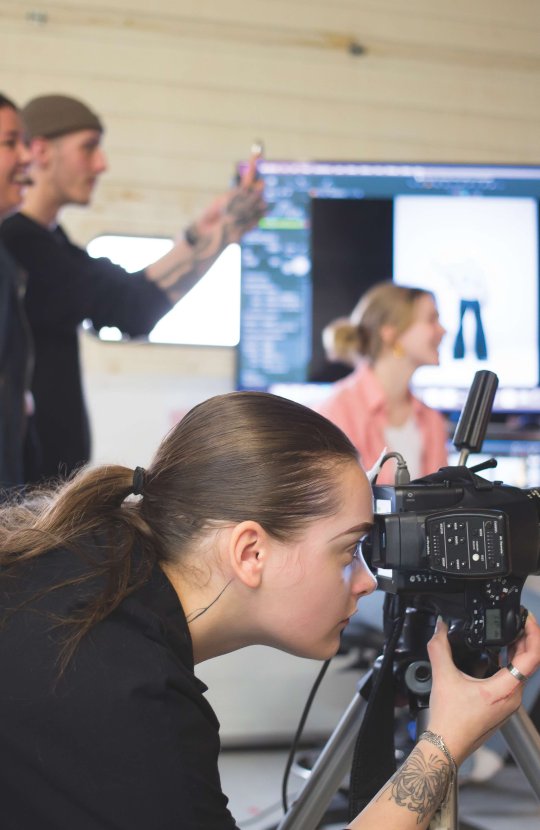
Virtual tour
Discover where you’ll spend your time as a student with our 360° tour, showcasing our facilities, accommodation, town and scenery.
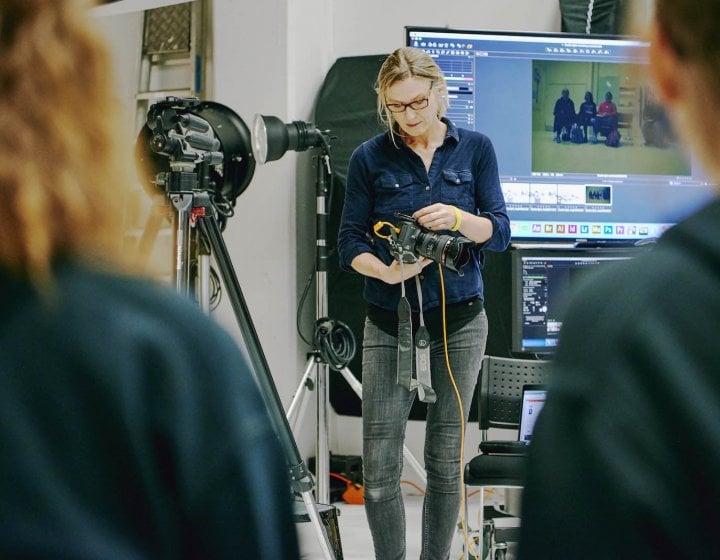
Photography Facilities
Housing dark rooms, post-production suites, full professional studios and gallery, our Institute of ...
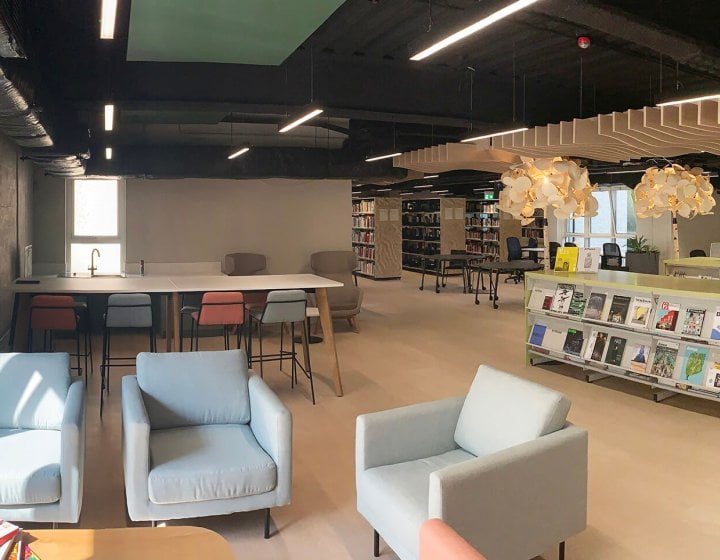
Library Facilities
Offering extensive collections, our two libraries provide a wealth of digital resources, magazines, ...

Sports Centre
Our Sports Centre, on Penryn Campus, includes a spacious gym with up to 90 of the latest, new statio...
Staff
As well as our staff of experienced photography, advertising and branding practitioners, you’ll gain insights from a network of inspiring visiting professionals which have in the past included commercial photographers working across all genres of photography, photographic agents, art-buyers, Industry leading post-production retouchers and producers.
Some members of staff only teach on specific modules, and your course might not feature every staff member who teaches on the course.
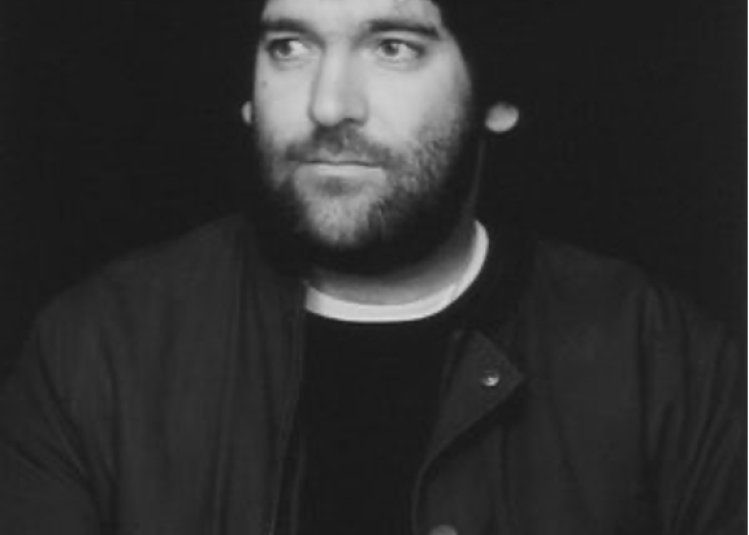
Anthony Prothero
Course Leader, Commercial Photography BA(Hons)
Born in 1984 in Torquay and then raised in Bath, Anthony went on to study BA Photography at Fa...
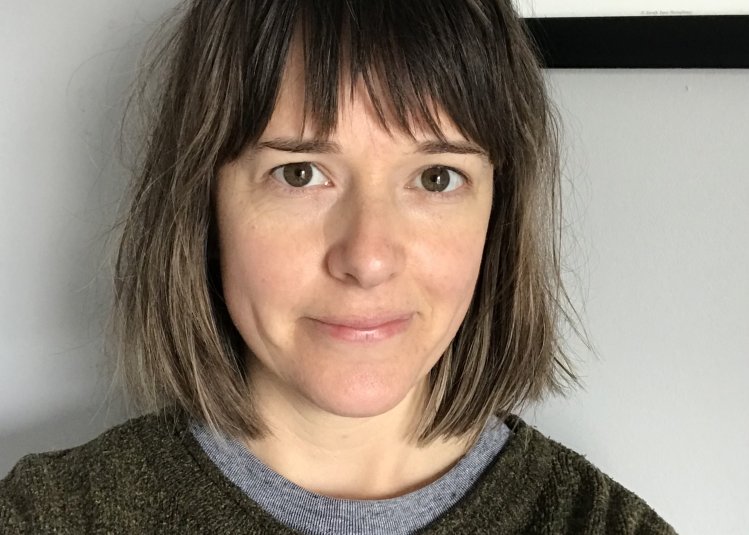
Laura Blight
Lecturer, Commercial Photography BA(Hons)
Laura Blight is a visual practitioner and educator, with a background in commercial stills productio...
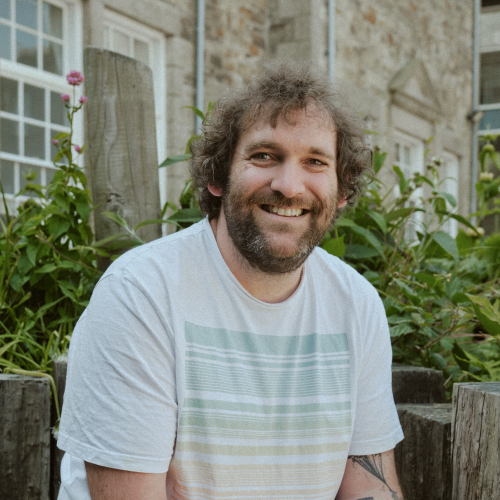
Got a question about this course?
If you want to know more about the course structure, our application requirements or what our graduates have gone on to achieve, our friendly course team is here to help.
Chat to AnthonyStories from our community
Explore student projects, graduate successes, staff news and industry insights from the Institute of Photography
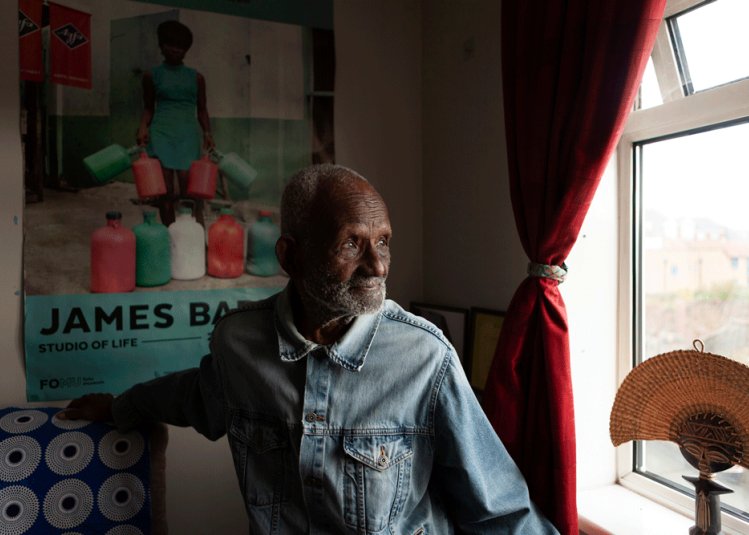
Photography lecturer shoots editorial commission for The New York Times
11 February 2026
BA(Hons) Photography (Online) lecturer, Celine Marchbank, has recently captured the 96-year-old Ghan...
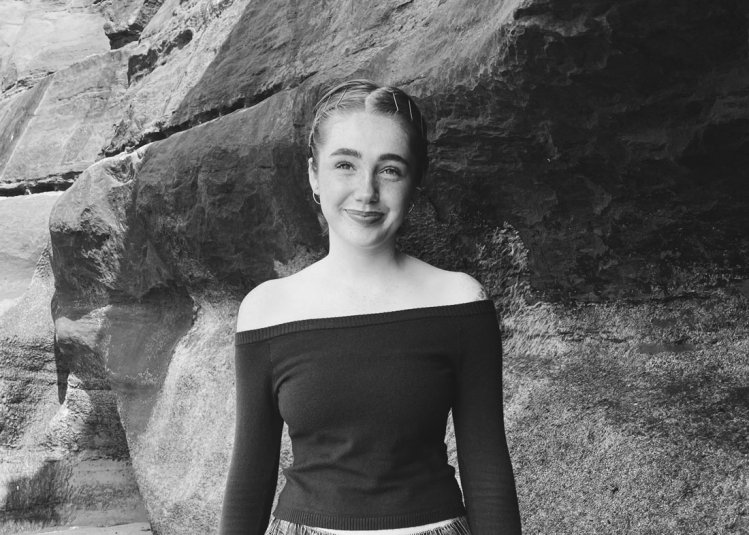
Falmouth graduate wins Portrait of Britain for second year running
10 February 2026
Niamh Shergold discusses the story behind her winning image.
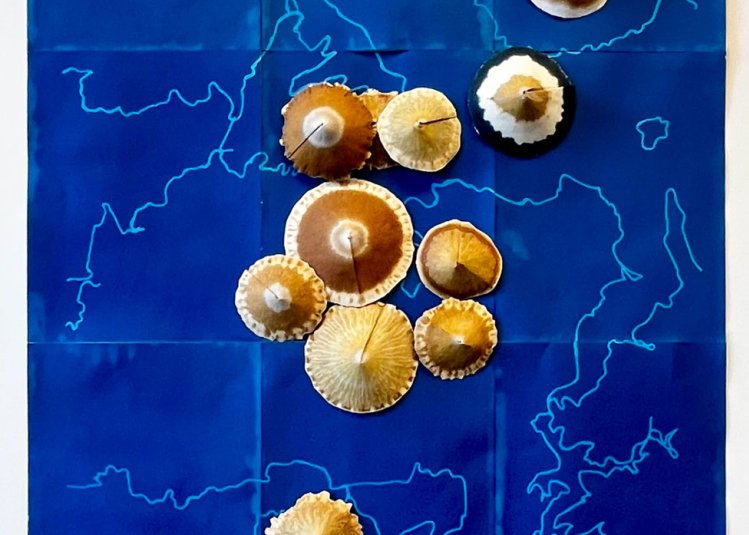
'Volcanic Field Map' by Linda Jarrett.
How an MA Photography project sparked change in emergency planning
05 February 2026
Linda Jarrett discusses her final major project on Auckland's volcanic risk.
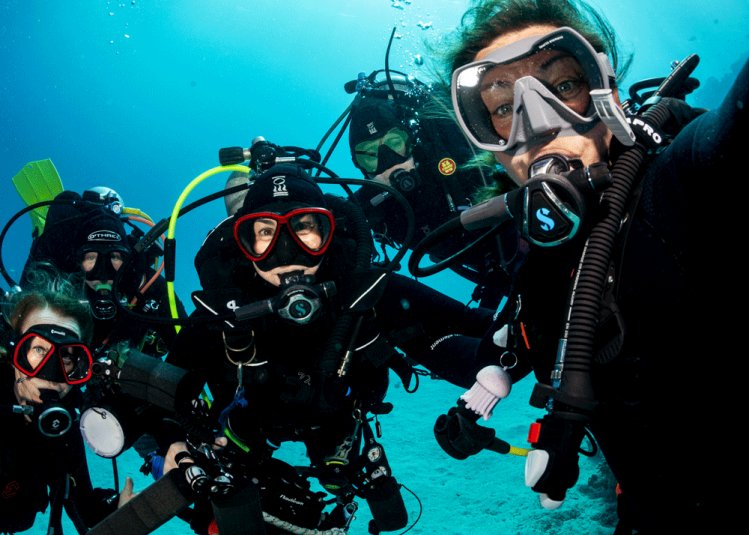
Photography students capture fascinating marine life in Egypt on annual diving trip
03 February 2026
BA(Hons) Marine & Natural History Photography students recently got the chance to dive into the Red ...

Credit: William Bunce
Still life photographer on fusing creativity with technical excellence
13 January 2026
Since graduating from Falmouth’s BA(Hons) Photography degree in 2010, William Bunce has forged a s...
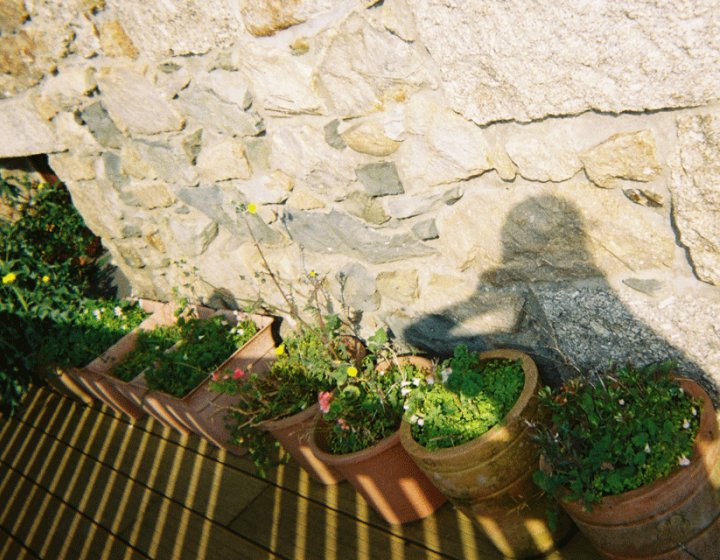
Falmouth lecturers collaborate with West Cornwall Women’s Aid to facilitate exhibition in Penzance
24 November 2025
Unsettled is an upcoming exhibition that showcases the strength and resilience of women rebuilding t...
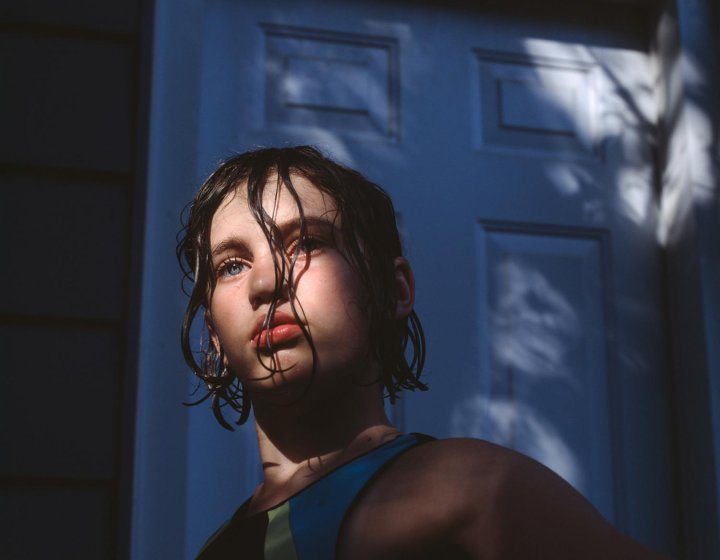
From the series 'All Quiet on the Home Front' by Colin Pantall
Falmouth Photography Lecturer explores fatherhood in Italian exhibition
20 October 2025
Colin Pantall's exhibition, 'All Quiet on the Home Front' explores fatherhood, landscape and identit...
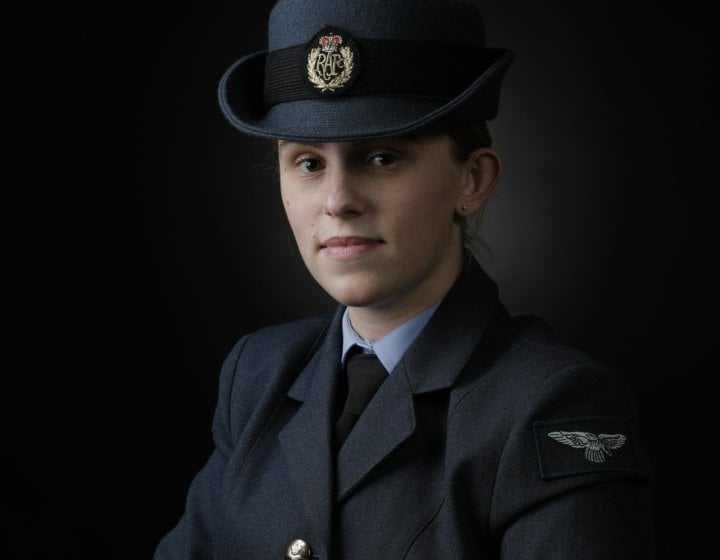
RAF Photographer on balancing military service with a master’s degree
03 October 2025
Read how Leah Jones combined military deployment with a master's degree.
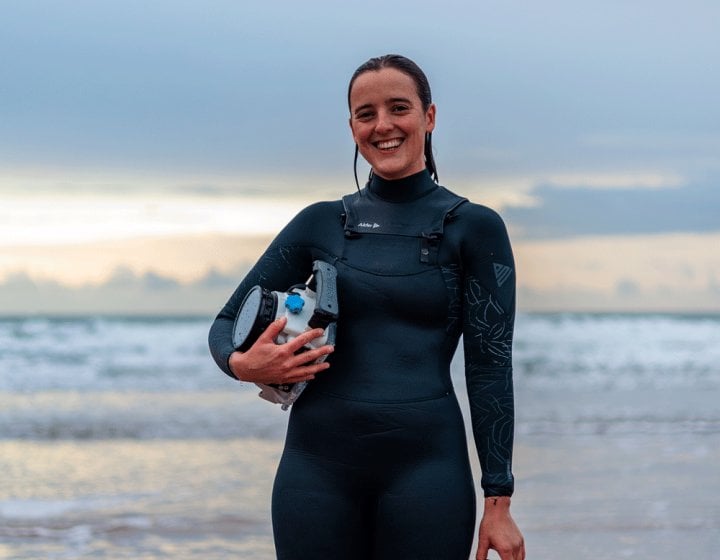
Falmouth alumna becomes the first female editor of long-standing surf magazine
23 September 2025
After feeling creatively influenced by Falmouth’s deep connection with the sea, nature and its com...
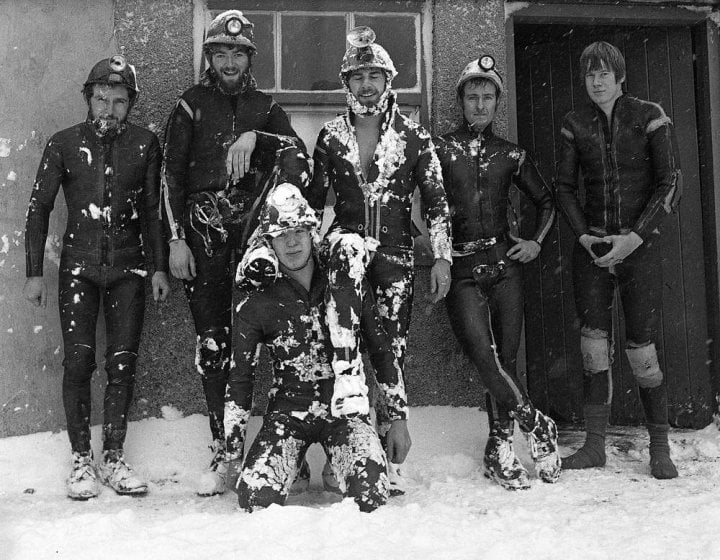
Eldon Pothole Club at Peakshill Farm, 1971
Falmouth student documents the eccentric world of Derbyshire cavers
31 July 2025
Specialising in portrait photography, Jon has turned his lens on the Eldon Pothole Club.
Careers
As a Commercial Photography graduate, you could become:
- A creative producer or art director
- A picture editor or digital retoucher
- A photographic agent or studio manager
- A technical assistant working in lighting, digital operations, post-production, location scouting, prop and set design
- A commercial photographer working in editorial, lifestyle, fashion, advertising, e-commerce, product and still life
- A stylist
- A creative or art director
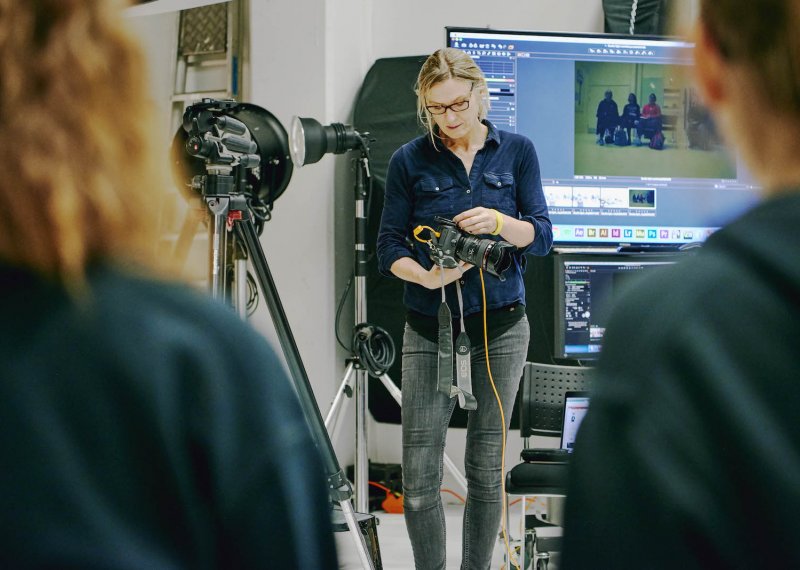
A photography degree unlocks careers in fashion, advertising, design, architecture, film, and publishing.
How to apply
Ready to apply for 2026?
You can apply for our undergraduate degrees via UCAS. You'll need our university UCAS code (F33) as well as your course code (which you'll find on your course page) for your application.
Applying as an international student?
There are a number of different ways to apply to study at Falmouth as an international student. Find out how you can become part of our creative community.
| Course route | UCAS code |
|---|---|
| Commercial Photography BA(Hons) three year degree | W643 |
| Commercial Photography BA(Hons) with Integrated Foundation Year | FY18 |
| Commercial Photography BA(Hons) with professional placement | PY36 |

Application advice & interview information
Go to ToolkitFor starting your studies in 2026
UK applications: 14 January 2026 (for equal consideration)
Applications after the 14 January will be considered on a first-come, first-served as long as there are places available. Apply for this course now.
For starting your studies in 2027
UK applications: 13 January 2027 (for equal consideration)
International fee payers
International fee payers can apply throughout the year. But we recommend applying as early as possible, to make time for visa and travel arrangements.
We consider all applications on their own individual merit and potential.
Our diverse community is creative, innovative and entrepreneurial. We recognise that these qualities aren’t always shown in academic grades alone. That’s why, while many of our applicants achieve high academic grades, we also welcome those who can demonstrate their potential through an exceptional portfolio or performance.
We welcome applications from all subject backgrounds, whether you’ve specialised in STEM, the arts or humanities. Find out more about our Entry Requirements here.
Course routes & entry requirements
BA/BSc(Hons) three year degree: minimum 64 UCAS Tariff points
BA/BSc(Hons) four year degree with professional placement: minimum 64 UCAS Tariff points
BA/BSc(Hons) four year degree with Integrated Foundation Year: minimum 32 UCAS Tariff points
At Falmouth, we'll consider the equivalency of your specific qualifications against our entry requirements and support you through your application journey.
View our International Entry Requirements
Language requirements
For applicants whose first language is English we require you to have or be working towards GCSE English Language Grade 4 (C), or equivalent.
If English is not your first language you will need to meet the same standard which is equivalent to the IELTS Academic 6.0 overall score, with at least 5.5 in Reading, Writing, Speaking and Listening. We accept a range of in country equivalencies and approved tests.
If you need a student visa to study in the UK, you may need to take a recognised language test. You can read our English Language Requirements for more information.
Fees, costs & funding
Tuition fees
| Annual tuition fee | Student |
|---|---|
| £9,790 per year | Full-time UK |
| £19,950 per year | Full-time EU/international |
| £1,955 per professional placement year | Full-time UK and EU/international |
| £9,790 per Integrated Foundation Year | Full-time UK |
| £19,950 per Integrated Foundation Year | Full-time EU/international |
| Annual tuition fee | Student |
|---|---|
| £9,535 per year | Full-time UK |
| £17,950 per year | Full-time EU/international |
| £1,905 per professional placement year | Full-time UK and EU/international |
| £9,535 per Integrated Foundation Year | Full-time UK |
| £17,950 per Integrated Foundation Year | Full-time EU/international |
Tuition fees for September 2027 will be confirmed in summer 2026.
Tuition fees are set annually and are subject to review each year. The University may therefore raise tuition fees in the second or subsequent years of a course, in line with inflation and/or the maximum permitted by law or Government policy. Students will be notified of any changes as soon as possible.
The figures above don't include accommodation and living costs
Typical course costs
Recurring annual costs
- £100 - £400 for photographic materials
One-off costs for the duration of the course
You will need to purchase a laptop (approx. £800+). It is an essential piece of equipment that you will need right from the start of the course. Our students use both PCs and Macs.
When considering your purchase of a laptop, the most important things to look out for is the CPU/RAM/graphics card, as you will be using production software that needs a large amount of power. We recommend one with as fast a processor as you can afford (8GB of RAM minimum) and a reasonably sized screen (13" minimum, 15" is optimum), plus the following minimum computer specifications:
Windows:
- Windows 10
- At least an i7 processor
- No less than 8-16GB Ram
- Graphics Card (nVidia 1080 minimum, not Intel Iris integrated graphics) with at least 2GB
- 256GB hard drive space minimum
- 1920 x 1080 display resolution or higher (most displays offer a higher resolution than this)
Apple MacBook Pro:
- Mac OS 10.15 or newer
- At least an i7 processor
- No less than 8-16GB Ram
- Graphics Card
- 256GB hard drive space minimum
- 1920 x 1080 display resolution or higher (most displays offer a higher resolution than this)
You may want to purchase a DSLR or Mirrorless camera system. However, there are lots of options for buying these, and we would suggest you try out the cameras and lenses we have available in the stores first.
If you have the finances available and want to purchase your own camera, we recommend a camera that has full manual controls and the ability to produce still and moving images, and a standard lens (50mm or equivalent)
- Canon EOS DSLR or EOS R series
- Nikon DSLR or Z Series
- Sony A Series (A7 or A9)
- Fuji X series
Study trips
Study visits, individual research trips and placements - £200 per year
Optional study trips
You will have the option to attend various study trips during your course. Previous trips have included London, New York, Amsterdam, Paris, Bristol and regional trips. These will cost between £400 and £1,500 depending on the location.
If you need to bring equipment or materials with you, these will be outlined in your Welcome Letter.
Course equipment and costs
As a medium, photography is constantly developing so the following figures are intended as a rough guide of anticipated expenditure on the course for 2024/2025.
Laptop
You will need to have your own laptop, PC or Mac, on which you can access online learning materials and can process high resolution digital images. This should be capable of running Photoshop as a minimum, the specifications can be found here: https://helpx.adobe.com/uk/photoshop/system-requirements.html
You will also need access to a reliable broadband connection (if you are living in University accommodation you will have this).
Accessories
- SD card(s), minimum 16Gb.
- USB card reader for the above.
- USB hard drive, minimum 250Gb recommended.
Approx. overall cost £50 – £100
Camera
Whilst a laptop is the most important piece of equipment for your studies, we would suggest waiting until you arrive as we have a wide range of cameras and lenses you can try before you decide which system is best for you. If you do want to take the plunge and buy your own DSLR then we would suggest a full frame or Mirrorless DSLR. The School supports Canon, Sony and Nikon so these may be the best choices for compatibility with our lenses and accessories.
Optional items – We also recommend the following optional equipment as an important aid to your studies:
- Lens hood and UV/Skylight filter for each of your lenses.
- Shutter release remote control or shutter release cable.
- Camera bag – large enough for items you may wish to use/purchase during the course.
- Sturdy tripod.
- There will also be a number of stationery items that you will need to purchase during the course such as notepads, A4 binders and a Stanley knife.
Approx. overall cost £50 – £100
Consumable materials
Throughout all three years students need to budget for material costs for film, printing, portfolio materials and other consumables. The actual costs will depend on the amount of work you do and on the decisions that you make in terms of processes, presentation, print size and so on. A budget of £100-£400 per year should cover basic costs.
During the first year you will get the optional workshops in the darkroom to work with analogue processes. You will be able to buy these materials from our stores on Penryn Campus, or from independent suppliers.
Additional typical course costs for Integrated Foundation Year pathway
- £250 for materials
- A laptop/desktop computer
- Adobe Creative Suite
To engage in the digital learning activity, although you will be able to access IT suites on campus, you will benefit from a laptop to access the platforms and tools we use. Depending on your subject, you may need a specific type of computer. If you're unsure about what you might need, please contact our course advisors.
Course equipment and costs
You will be recording your creative progress and writing about your work throughout the Integrated Foundation Year and so a laptop computer and a smartphone are highly recommended.
Typical course material costs:
- £250 - Recurring annual costs may include: art/creative materials and costs towards your end of year show exhibition and can vary depending on material choices and specialism.
Study trips:
There are several field trips, and you will need to allow for some costs for student contributions towards coach hire and exhibition entry. Total annual cost of day trips approximately £60.
If you want to attend the planned week-long residential trip to London in the Spring of 2026 then you will need to plan for a £100 deposit payment shortly after arriving on the course, to secure a place, and to budget for a total trip cost of approx. £400 - to be paid in instalments.
Funding
For information about funding available, please visit our student funding pages.
Ask a student
What better way to find out about life at Falmouth University than by asking our current students?
From course details and academic support, to the social scene and settling in, our students are ready and available to answer any questions you might have. Simply set up your account, send them a question and they'll get back to you within 24 hours.
Similar courses

Photography BA(Hons) (Online)
With a distinct focus on global digital communication, this online photography degree will equip you...
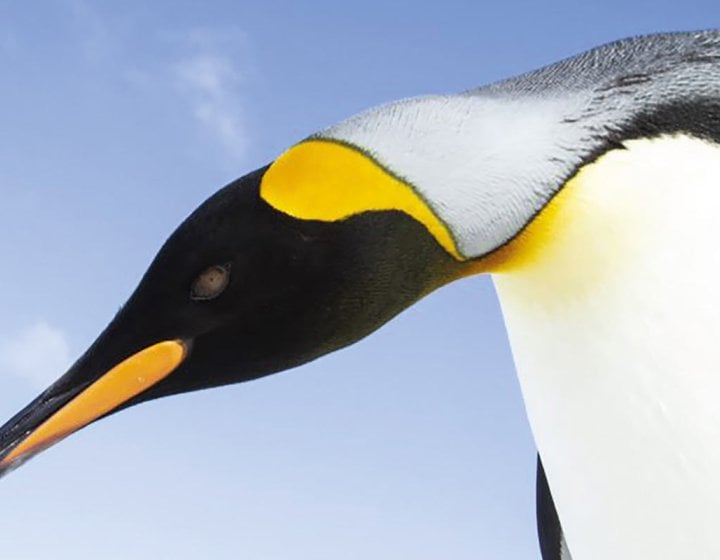
Marine & Natural History Photography BA(Hons)
Harness your passion for photography and filmmaking to inspire audiences about nature and the enviro...

Photography BA(Hons)
On this dynamic course, you’ll explore the world of contemporary photography and develop a unique ...

Fashion Photography BA(Hons)
Develop your unique artistic voice and springboard into the industry as an innovative fashion photog...

Documentary & Editorial Photography BA(Hons)
On this fast-paced degree, you’ll learn to use the power of photography to communicate with a glob...
Open Days and events
From visiting campus to online application advice, get all the information you need about joining our creative community.
Find an event
